Newcastle United Football Club, founded in 1892, has become one of the most iconic and storied clubs in English football. Known for their passionate fanbase, famously black-and-white striped kits, and the towering St. James’ Park, the club’s history is rich with moments of glory and heartbreak.
From the early days of league football to dominating the domestic scene in the mid-20th century, Newcastle United’s journey is filled with remarkable achievements and legendary players. However, like any great club, their history also features periods of struggle and rebuilding.
This article will delve into the evolution of Newcastle United, tracing its rise, challenges, and enduring legacy in the world of football. From what makes Newcastle fans unique to their achievements in every era of the sport, we will cover every detail of its history.
Take a look at each aspect below, and you’ll become an expert on the matter. Here’s everything you need to know about the history of Newcastle and its influence in the world of football:
Table of Contents
- From St James’ Park to the World: History of Newcastle United
- The Glory of Newcastle United
- St James’ Park
- History of Newcastle United
- Main Achievements and Awards
- Write Your History With FootballTeam
The Glory of Newcastle United
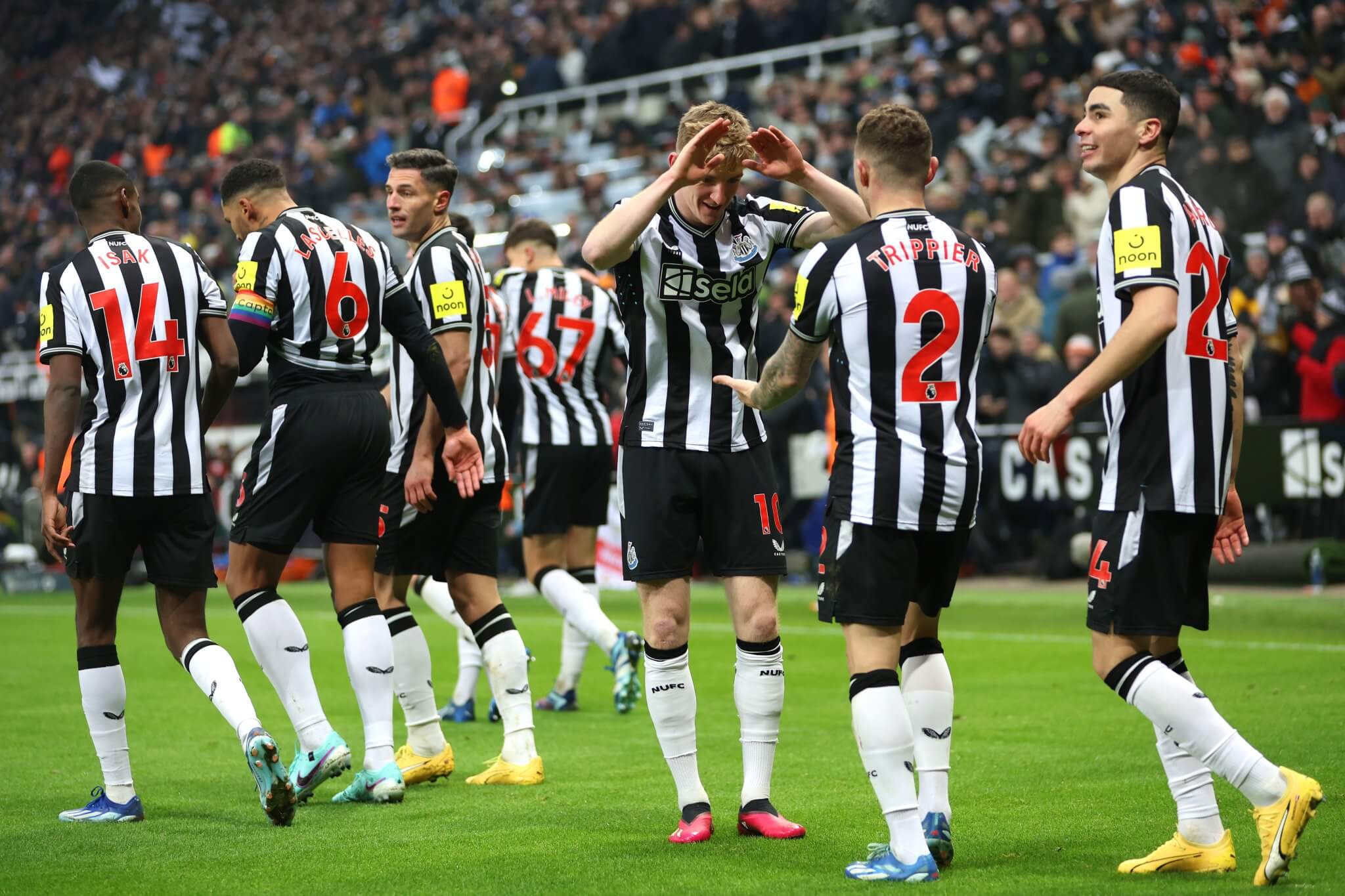
Undoubtedly, the club’s fans are some of the most avid in the world, cheering for the team no matter what. But along with a loyal fanbase, Newcastle United is also one of the most iconic teams in the entire English territory.
The top-flight club collects a vast collection of League titles, including six FA Cups and successful campaigns in the Premier League. However, this success and solid reputation weren’t built in just one day.
The team has a long history of ups and downs and a vast list of players who were essential in this journey. Don’t worry; we will talk about them later in the article. These are just a few of the elements that made it possible for the team to become a powerhouse in football and one of the main clubs in the United Kingdom.
The club’s history is a source of inspiration for players and fans alike. This article offers a comprehensive look at every facet that has shaped the club into its present form. Delve into each detail to gain a deep understanding of the club’s journey.
St James’ Park
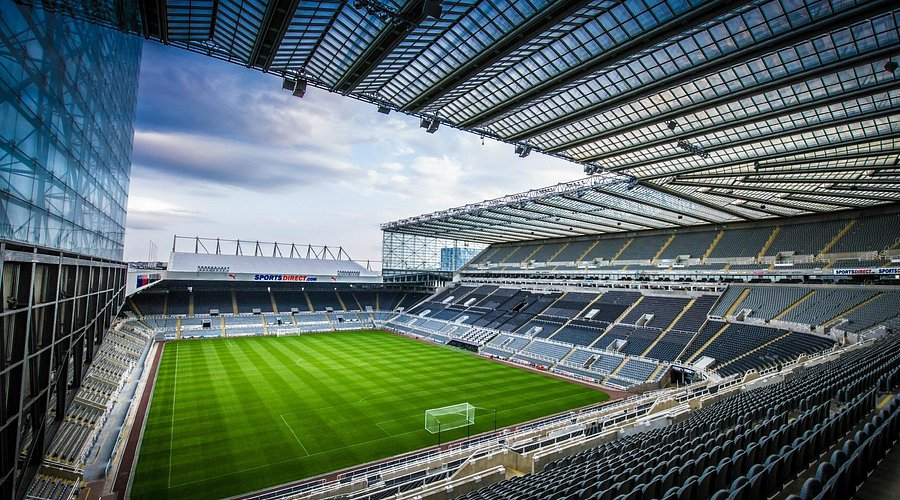
Every game at St James’ Park is a mix of emotions and a show from the two teams playing. It mixes all the elements we expect from a top-notch arena without giving up on comfort or architectural beauty. It is one of the main venues near London and also one of people’s favorites for all kinds of events.
The arena was officially opened in 1892 and has undergone numerous renovations throughout the years. The last one was in 2000, turning it into the powerhouse we know today. Nowadays, it has a capacity of over 50,000 seats for football matches, and this number can expand depending on the kind of event being hosted, like concerts.
More than just a venue for games and general events, St James Park is an important monument of its region and a must-visit for any tourist visiting the place. You can tour the stadium and discover tons of curiosities about the site. If you’re visiting England, add St James Park to your list of places to visit.
The facility also has tons of attractions that go beyond the field. You have restaurants, museums telling the history of Newcastle, and even a store to take a piece of this adventure back home with you.
History of Newcastle United
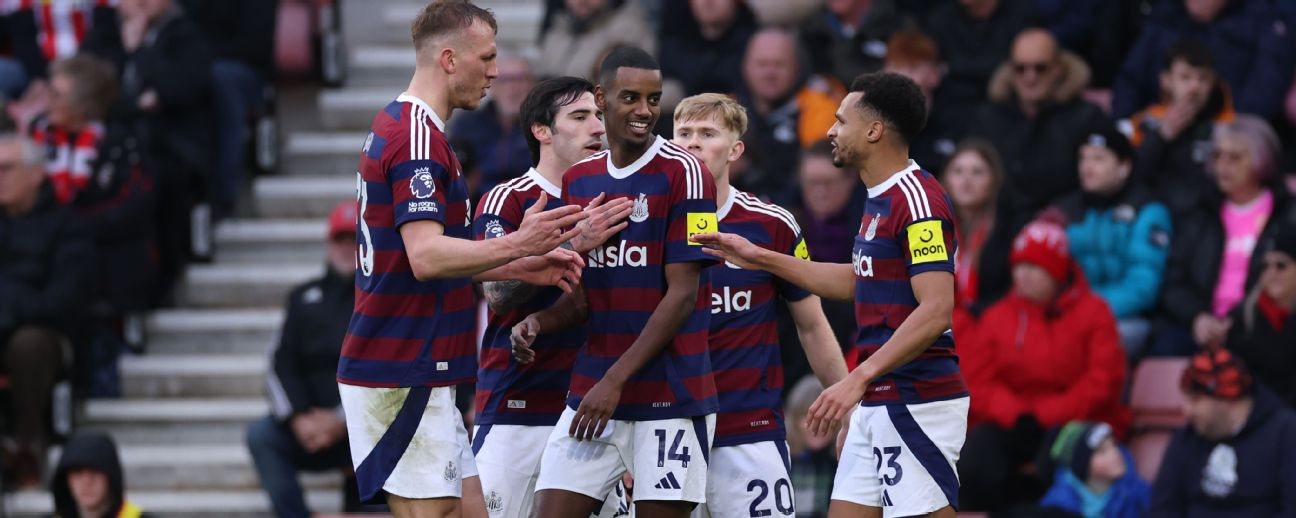
Now, it’s time to dive deep into the club’s history and its main details. We will cover every aspect of the club, including Newcastle awards, the main players who made this journey possible, and every other aspect of their efforts throughout the century, from its foundation to the Premier League era and modern football.
Make sure to take a look at each item so you don’t miss anything on this iconic team. From trophies to players and emotional moments, here is everything you need to know about the history of Newcastle FC:
Foundation and Early Days
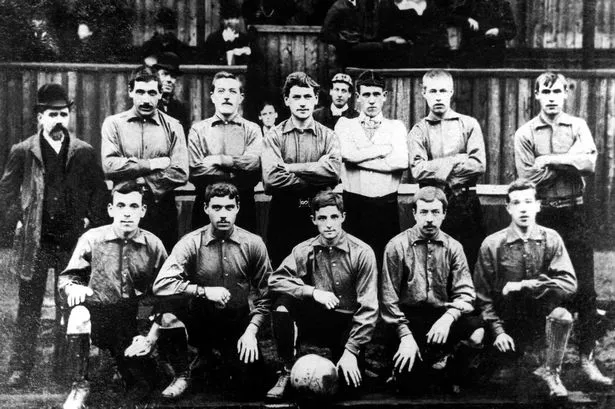
The team’s origins can be traced back to 1881, although it wasn’t known as Newcastle United at the time. The creation of the team and its early history are well-documented.
During that period, a cricket team called the Stanley Cricket Club created a football roster to play during seasons when the sport wasn’t practiced. This team was founded in November 1881 and officially renamed Newcastle East End in October 1882 to avoid confusion with another team known as Stanley Country Durham.
Their first game happened against Eswick Lether Works. The Newcastle players scored five goals and made an impactful debut in the sports world, quickly catching the attention of more fans in the following season. Even though the plan wasn’t to be part of the first or second tier of national football specifically, the team found out they had big chances of conquering high grounds as a club.
However, this is where it gets confusing, so bear with me! In August 1882, after the team changed its name and became Newcastle East End, on the other side of the city, the West End Cricket Club also started demonstrating interest in football. With this, they decided to create the Newcastle West End Football Club. As expected, the two clubs became instant rivals and often played against each other to see who would be promoted and get closer to the dream of joining the first division.
Becoming Professional and Legendary Rivalry
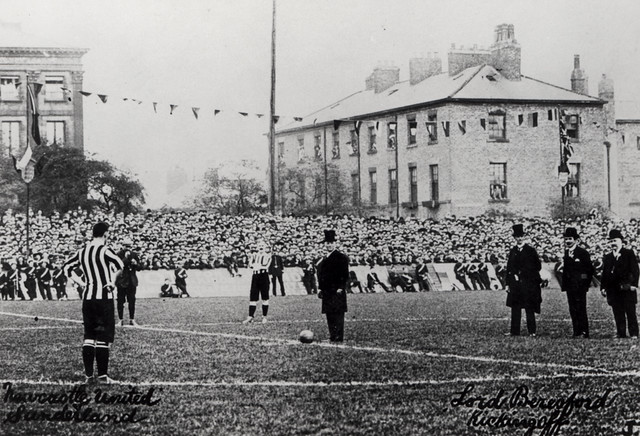
Like in any dispute or battle, only one side can win. After numerous encounters and general confusion due to their similar names, one of them was crowned the official winner, but this took a long time.
Both clubs raced to see who would gather more awards and wins in the shortest period. East End became the first team to become officially professional and recognized as a top-flight team in the country. On the other hand, West End got adopted as the territory’s “official” club, not only because they played at St James Park, which was a bigger venue, but also because of their signings and overall results.
In order not to be left behind, East End started luring big names to participate in the club and help them shape a professional image capable of winning any tournament and challenge.
They managed to attract the attention of Tom Watson, who became the club’s manager and chairman. He was responsible for signing good players and making the club reach the next level of competitive football.
While they were making several good signings and even achieving greater results in matches, West End struggled to keep up with the competition’s level and went on a constant downfall. They were still the city’s main team, but their performance disappointed the fans and made them slowly lose their hope in the club.
Creation of the FA Cup and End of Rivalry
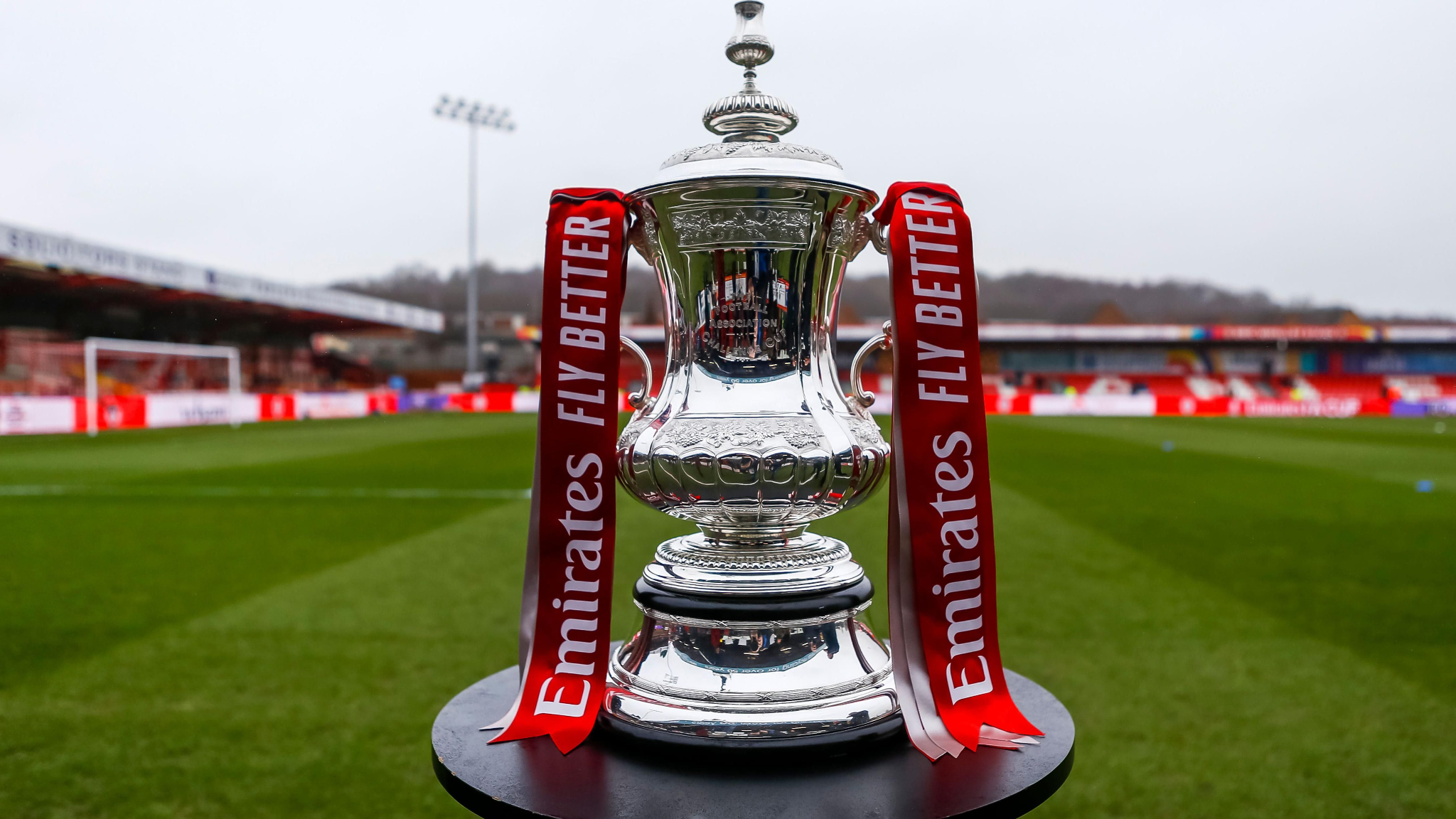
In 1889, a pivotal moment in English football occurred with the establishment of the FA Cup. This inaugural league-oriented competition quickly became the sport’s highest honor, drawing the nation’s top teams to compete for the title of best in the country.
To participate in the competition, you needed to be part of a professional team, which East End instantly became. Becoming officially professional was a bold move, especially for a recent and amateur team, but this didn’t stop them.
A few years later, in 1892, West End started feeling the consequences of their low performances, reaching the lowest score in their history and with no hopes of reaching FA Cup finals. With that in mind, they negotiated with their main rivals in an attempt to earn money and keep the club alive, at least for a while.
They sold some of their best players to Newcastle East End and also their home ground. As a result, East End became even stronger, securing possession of St James’ Park, the most important stadium in the region.
Soon after, the club also gave East End control of the management and everything else. Due to financial problems, the club could no longer exist, and the directors decided this was the best decision to make.
The rivalry ended after nearly a decade, leaving the town with a single club to support. The East Club’s major victory marked the start of a new era.
Merger and New Name

Considering all the aspects, the two teams merged, creating one big institution that would bring pride to their region and conquer the football pitch, regardless of the challenge. But before joining the competitions, they decided they needed a new name that symbolized the merger between the two clubs.
They discussed numerous options before choosing the final one. Alternatives like Newcastle F.C., Newcastle Rangers, Newcastle City, and many others were considered. But in the end, there was one that they believed to be the best one, as it signified the fusion of the two teams and kept both legacies. With this, Newcastle United was chosen and is the club’s official name to this day, even a century after the decision. It is important to mention that even though the name was changed to Newcastle United and registered, it wasn’t legally recognized until 1895.
After that, the team tried to join the first division as runners-up for the main competitions in the country. However, the invitation was denied. They were invited to the second division, but they didn’t accept the proposal as the costs of traveling to the region and other expenses were not worth it. They stayed in the Northern League for another year, competing against other regional teams.
At the start of the 1893-94 season, they tried once again to join the first division to participate in the main competitions, hoping to win an FA Cup trophy or any other major award. However, once again, the league turned them down, so they decided to accept the invitation to join the second division. There, they would play against Liverpool and Woolwich Arsenal, which are now a reference in the sports world.
First Golden Era and Promotion
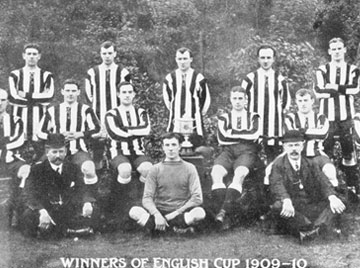
The late 1890s and early 1900s were some of the best years in the club’s history. Even though they were a recent team in high-level competition, they demonstrated much more maturity and knowledge than more experienced teams on numerous occasions.
They remained in the second division for a while, but it didn’t take long for them to get promoted. One of the leading names responsible for that promotion was Frank Watt. He became the club’s secretary and helped in every aspect of the club, earning them a promotion to the first division.
Even though the first game wasn’t a victory, it was the first step toward conquering the football scenario and making the name Newcastle United known worldwide. The first match in the first division was against Wolves, and the opponents scored four goals, while Newcastle scored only two.
For the 1904 season, the team started restructuring the club, making new promising hirings, developing new strategies, and adjusting every aspect of the club to ensure a better performance in the next tournament. We can say it was worth it, and since then, the team has gone on a winning streak and made one of its best campaigns.
Their playstyle combined artistic plays and a strategic vision that would win any game even if the opponents started with a score advantage. It was the beginning of one of their best performances and what would carve their name in the history of English football.
Winning Streaks and World War
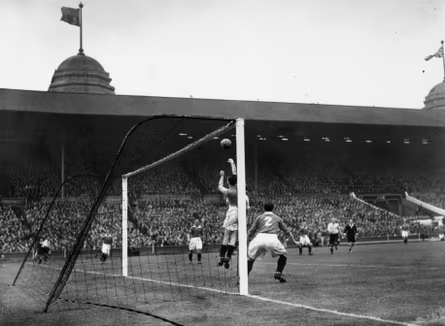
With the restructured team and new strategies, Newcastle won numerous tournaments, including four league titles in the early 1900s. They also participated in five FA Cup finals, almost winning a double, which they lost to Aston Villa during the 1905 season. Although they reached countless finals, winning the trophy was a challenge for them.
Even though they reached the finals, they lost several times to teams like Everton, Wolves, and others. During one of the seasons, they also suffered their all-time-record home defeat against Sunderland, when they were beaten 9-1. Still, they managed to make an immediate return and won the League title that year.
Winning the league title almost six times in such a short time was admirable and made the team catch the attention of coaches and some of the top goalscorers in the country. However, one problem was on the way and would impact the entire sports world.
The First World War was emerging, and the United Kingdom was in the middle of the conflict. Although it didn’t stop sports from happening in the territory, they were definitely slowed, and the number of games was drastically reduced.
The interwar period was complicated for every team. Despite the horrors of the conflict and the uncomfortable feeling throughout the globe, Newcastle United managed to continue a top-tier performance during that time.
The team won its second FA Cup and secured new League titles, showing the whole world that despite all the obstacles, taking the team down would not be easy, and they were ready for anything.
First Relegation and Wartime League
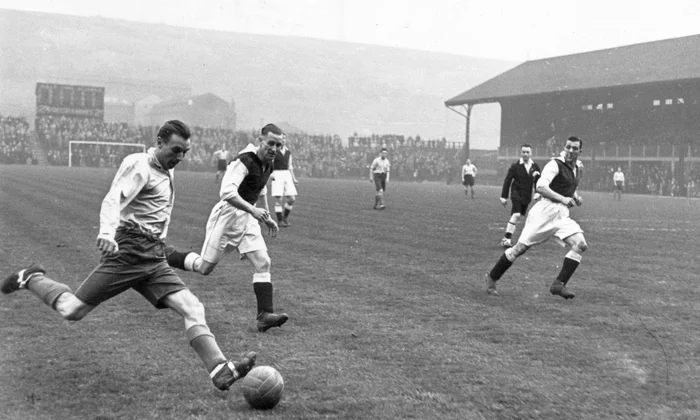
Even though the team was showing promising results and its game style was proving very effective against their rivals, this didn’t prevent the club from staying away from the second division. In the 1934-35 season, Newcastle United was relegated for the first time after 32 seasons in the first division.
What’s funny is that while it was relegated, it also defeated Liverpool 9-2 and Everton 7-3 within a week of space between the matches. However, things were not going so well in the second division, as the team was struggling to adapt to its competitors.
Newcastle United went on a losing streak and fell to the bottom of the second tier, almost going out of it.
But this wasn’t the only struggle at the time. In 1939, World War II broke out, and this time, the sports world was more impacted. Even though some competitions throughout the continent continued, English teams decided not to participate in them due to the associated risks.
The players’ lives came in first place, and the country organized what they called the Wartime League, a group of teams to compete against each other and keep the love for football alive. This gave the days some sense of normality despite the horrors of the conflict.
Newcastle United saw this as an opportunity to regroup and work on their weaknesses to return better than ever to the competition. They didn’t win any Wartime League trophy, but they signed valuable players who performed outstandingly and represented a bright future for the club.
Post-War Success and Cup Victories
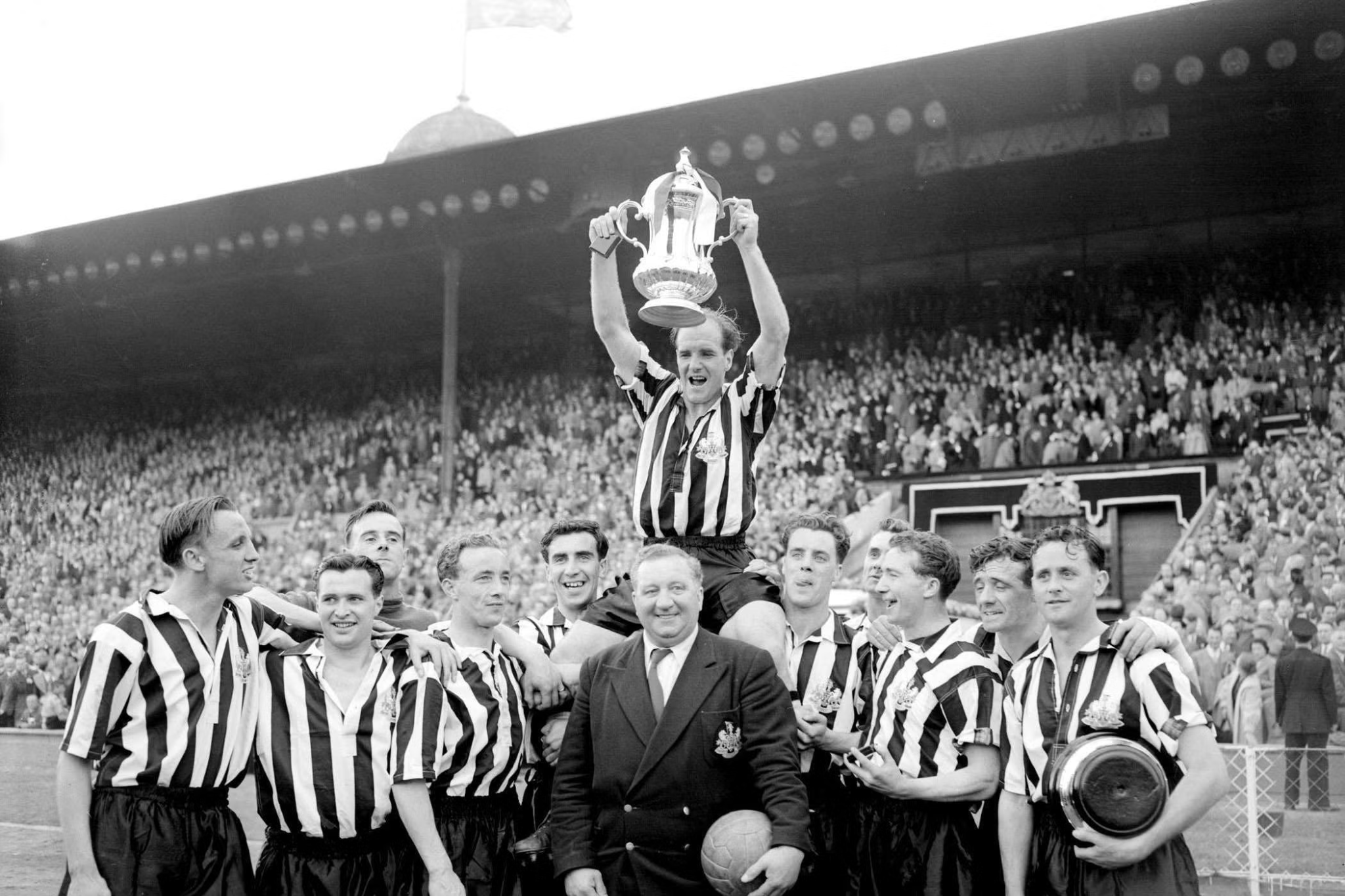
Undoubtedly, the war led to many changes in multiple areas, and entertainers were among the most impacted categories. The world needed entertainment to recover from the horrors of the conflict, and football was one of the best ways to do that, giving people a feeling of normality and allowing fans to see their idols play and cheer for them.
The post-war period was an excellent time for Newcastle United. The team was in good shape and achieving positive game results, mainly thanks to the hirings made during the Wartime League. They were still in the second league, as the official tournaments were stopped during wartime, but attendance was higher than ever as people were looking for entertainment.
Newcastle United’s highest score ever was achieved during their time in the Second League, in a match against Newport County. They won with a remarkable 13-0.
Newcastle returned to the first division of English football in 1948, and attendance was bigger than ever. Every game filled the stadiums, and anyone spectating felt a mix of emotions.
The 50s were brilliant for the team and one of their best campaigns ever. They managed to win the FA Cup a total of three times in only five years, an impressive result even for England’s biggest teams, like Manchester United and Arsenal.
Even though the team’s beginning of the decade was marvelous, and it was more popular than ever, the second half wasn’t exactly as planned. The beginning of the 1960s was marked by the team being relegated once again. The team needed a rebuild, and their time in the second division was essential for that.
Unstable Performances
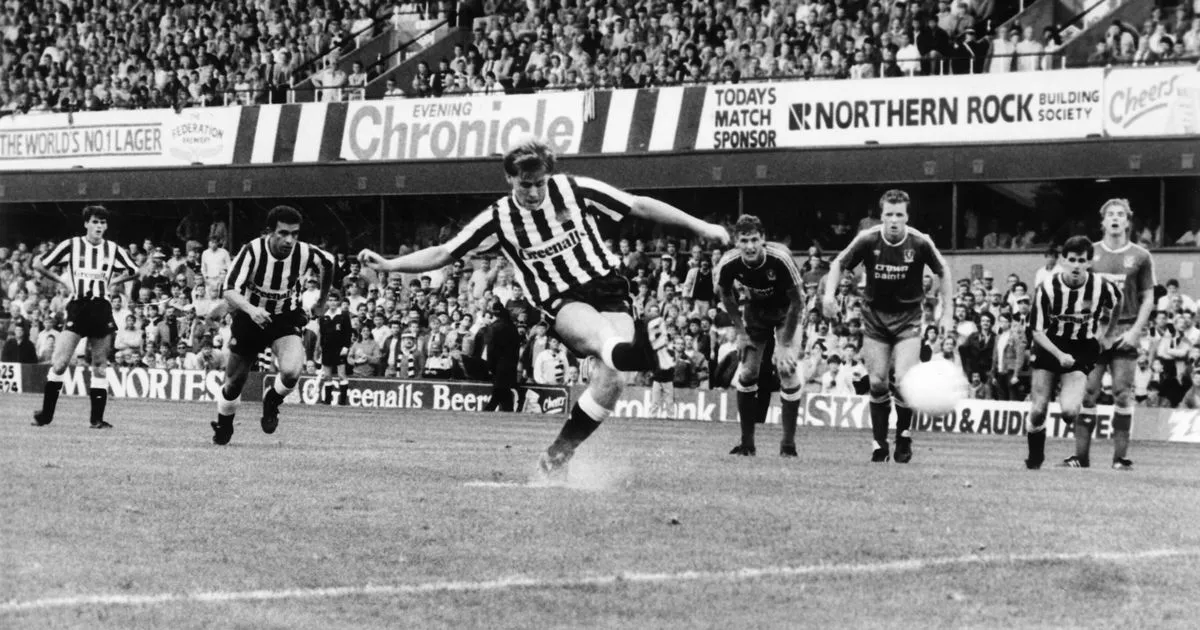
Restructuring the team was needed, but it wasn’t enough to keep the team away from relegation. The following decades were marked by the team jumping from one league to another, floating between first and second-tier tournaments. It was common to see the team changing its coach and team members frequently in a desperate attempt to repeat the success of the past years.
The team was having serious difficulties securing any trophy or award. It was tough to recognize the team, especially considering that just a couple of years before, they raised the Inter-Cities Fairs Cup trophy and were celebrating constant victories.
These 30 years of few achievements and even fewer titles impacted the whole of Newcastle United, making the management not only substitute coaches and players but also board members. Even though they managed to return to the first division for a couple of seasons, they would shortly fall to the bottom of the table and join the lower division again. This also led to a decrease in the number of spectators in games and caused some financial problems for the club. They needed a solution quickly to avoid further issues and an irreversible crisis inside the company.
Thankfully, their savior was on the way: Kevin Keegan. His efforts were truly miraculous, and he was one of the main figures responsible for restoring the club to its glory days.
Keegan Era and Premiership
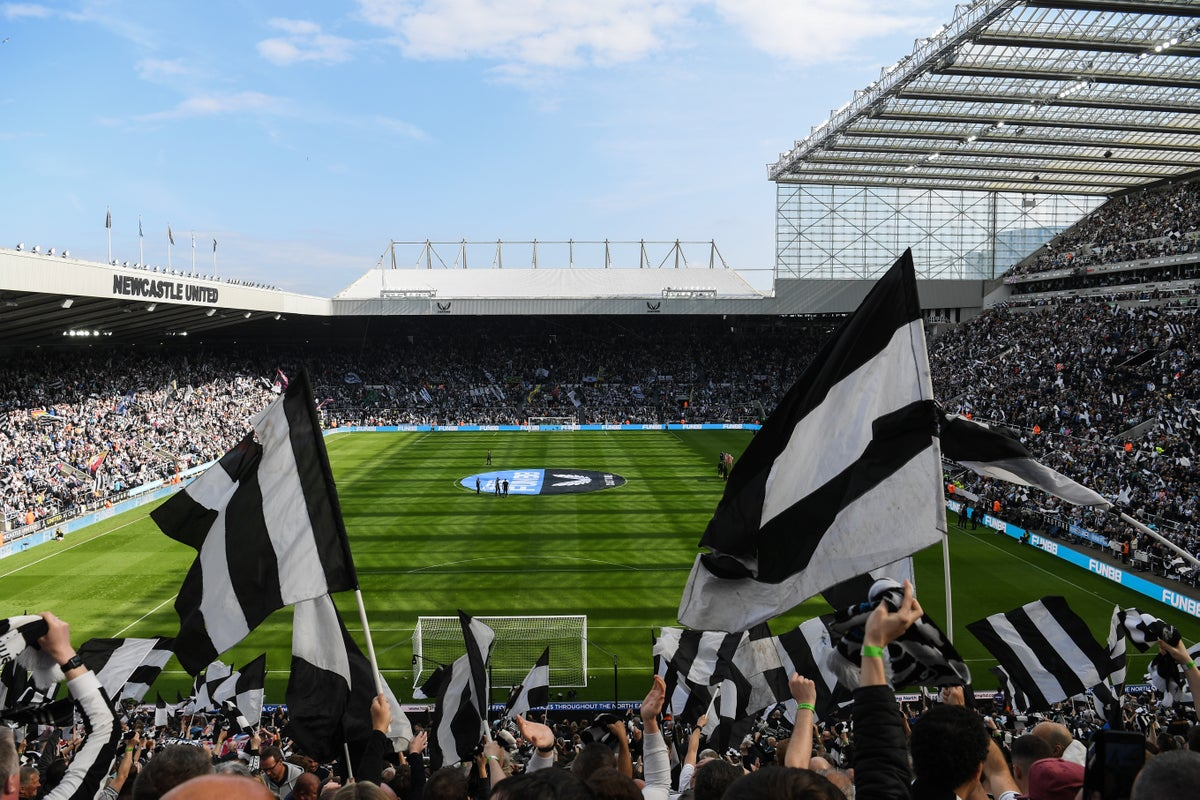
The 90s were also one of the most important decades for the club, not only because of their tournament results but also because a lot changed. The Keegan effect was real, and they not only avoided relegation from the second division but were also promoted back to the top tier of English football in the following season.
The creation of the Premier League that year, the most important football competition in the United Kingdom, made this especially crucial. Every fan’s dream was to see the “toon army” play in the tournament, and they worked hard to make it happen.
But before that, they also managed to play in the UEFA Cup in the 1993-94 season, something they were struggling to do in the past season. It was the sign everyone needed to see that the team was back stronger and ready to conquer the world of football again.
In the same season, they also achieved the dream of participating in the Premier League, playing against the leading teams in the country, like Liverpool, Man City, and others. They didn’t win the trophy, but seeing them participate in the most critical competition in the country filled fans with hope and joy.
But that wasn’t everything for the decade. Another vital aspect of the ’90s was that St James’ Park received significant renovations to make it more modern and comfortable for spectators and players. The football world evolved drastically since the stadium’s construction, and an upgrade was deserved. The arena was converted into an all-seater stadium and renovated its looks without losing its essence.
New Signings and Champions League
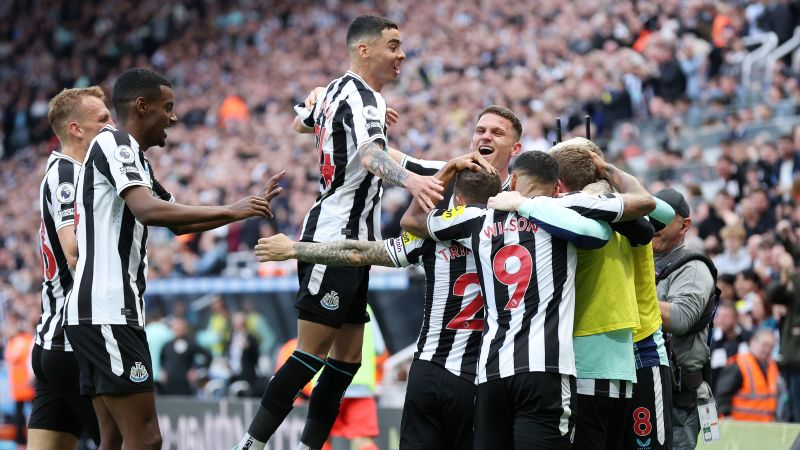
Keegan continued to surprise fans with hirings and signings no one expected. These signings included the striker Alan Shearer, for a then-record fee of 15 million pounds, and many others. He was building a team of legends, and these efforts proved extremely successful as they would grow in performance and popularity every new season.
Even though Keegan did a lot for the team and improved their results, he resigned after failing to win any awards during this time. He said he felt like he did everything he could for the team. However, fans were unhappy as a trophy wasn’t a reality yet.
The decision to substitute Keegan was a surprise and divided fans. Some thought it was the right thing, as they didn’t win any tournament, but others felt he improved the team in every aspect and helped them reach their best performance in years.
Whether it was the right move or not, it was time for Kenny Dalglish to prove his value as the team’s new coach. Continuing the improvement legacy was very important, especially because of one tournament: the UEFA Champions League.
Newcastle not only managed to enter the competition but also went farther than anyone thought they’d go, defeating Barcelona, one of the strongest teams on the continent. They reached 13th place in the competition and surprised everyone. It was far from the desired win, but it was a sign that the team was improving constantly.
Relegation and New Owners
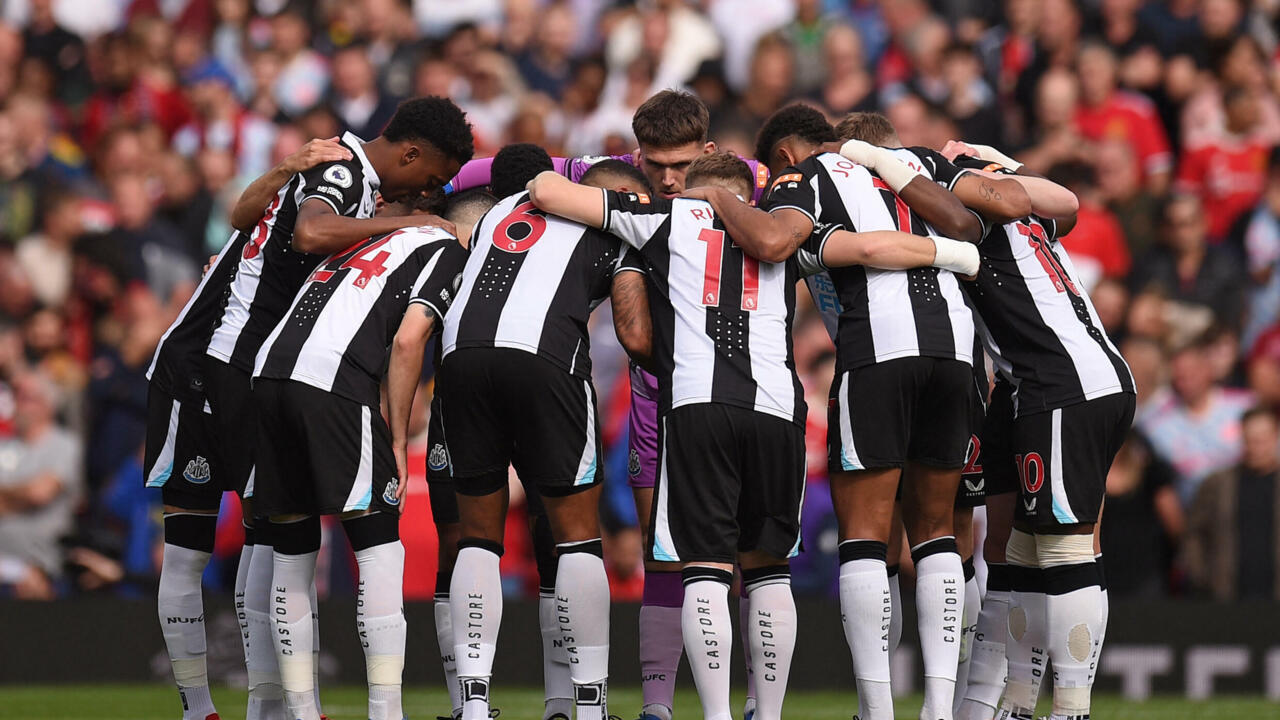
After a good decade of improvements and promising results, Newcastle United Football Club’s team was sold to a new owner, billionaire Mike Ashley. This had a direct impact on the entire club and its management, changing coaches, managers, chairmen, and various aspects.
This new phase of Newcastle United left fans wondering how these changes would affect the team’s performance and their results on the field. The following years showed not-so-good performances and a lack of achievements for the club.
This led to one of the most controversial moves in the club’s history, which left some over the moon, while others weren’t quite as thrilled. To everyone’s surprise, Kevin Keegan was once again named the club’s manager and head coach. It marked his third stint with the team, making him one of the most prominent figures in the club’s history, especially in a coaching role.
His efforts in this new phase were effective at first, signing new players and producing consistent results throughout the season. However, his work had a much greater impact than just scoring results.
The news that he was the new coach also spiked ticket sales, and the stadium was more crowded than ever. His debuting game was also a show of entertainment for everyone, as they saw Newcastle United win against Stoke City 4-1 in an FA Cup game.
However, the following games were a disaster, and he lost ten consecutive matches until he decided to change the team’s formation and strategy. This led to victories and much better results, including finishing 12th in the league.
Modern Newcastle United and Recent Campaigns
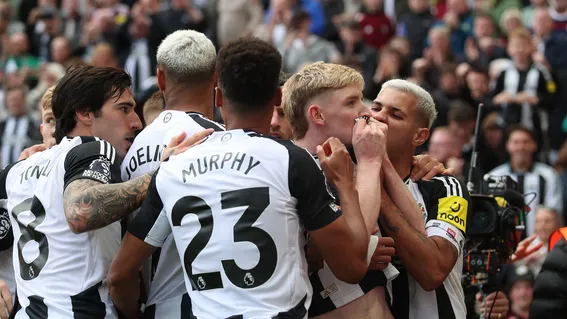
We can say a lot has changed in recent years. Throughout the last decade, the team suffered multiple relegations and performed well, with every game being an incognito of whether they’ll play their best match in the season or fail to hit the net once.
With the team being sold once again and the coaches changing faster than ever, it has been challenging for United to find stability and consistency in its results. Even though the dream of conquering the Champions League or the Premier League hasn’t become a reality, Newcastle will never give up on trying. They’re a symbol of resilience and represent an entire city that loves football and will cheer for them no matter the obstacle or the difficulty of it.
One of the most recent episodes of this saga was the scandal between the club and the Premier League. After the Reuben Brothers tried to acquire the club and the council decided to block the takeover, Newcastle United made a series of accusations against the league, accusing them of treating the club’s fans with contempt, among other things.
This drama resulted in the Premier League denying every accusation of the club and stating their disappointment with the situation. Numerous rumors started to appear in the community about who would purchase the club and what the Premier League would do regarding the accusations.
In the end, Newcastle United was purchased by the Public Investments Fund and stayed under the city’s coat, along with PCP Capital Partners and RB Sports. This change was much needed, considering the club’s financial situation. As for the results, things stayed the same, with the team fluctuating between good and bad results throughout the season.
The recent years have been better, with the team advancing further in the Premier League and playing the Champions League against the giants of Europe.
Future of Newcastle United
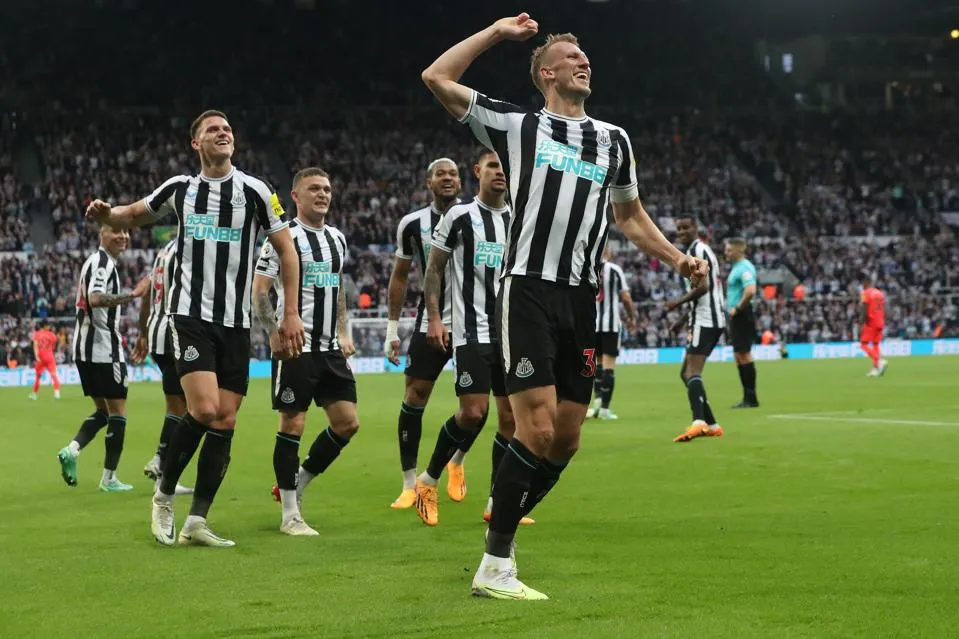
There is no doubt that Newcastle has experienced numerous ups and downs throughout its history. But more than that, the club has over a century of impact and influence in the world of football. It is one of the oldest clubs in England and a vital part of why football is how it is today. The team revealed its talents to the world and showed itself to be one of the most resilient teams, surviving numerous relegations and always finding a way to overcome obstacles.
In the future, we can expect to see more of this resilient spirit and a roster that is proud of its legacy and impact in sports. Whether in one, five, or ten years, we will see the club conquering more trophies and reinforcing why they are such a powerful club. From cricket to football, Newcastle United is a club about passion and never giving up on your dreams.
Whether you’re a fan of the team or not, keeping an eye on them is always a great idea if you’re looking for inspiration or want to learn more about what makes a team become a legacy to the world. They created a history that will never be forgotten and is part of England’s history, especially in sports. When you visit the region of Newcastle, this becomes even clearer.
Main Achievements and Awards
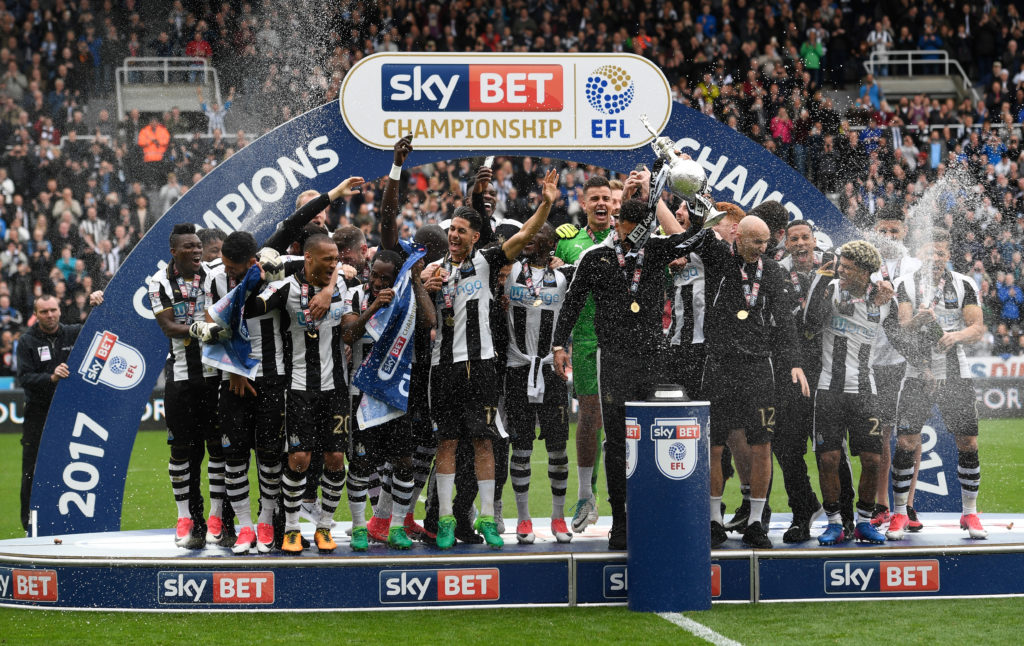
Regarding achievements, Newcastle United is a well-decorated team, with a series of trophies and awards to cause envy to any English team. Here, we will see some of the main ones and their history.
If you want to learn everything about this club, make sure to take a look at every item below. As expected from a popular club, they include national and international awards. Here are the main achievements of United conquered throughout the century:
Inter-Cities Fairs Cup – 1 Trophy
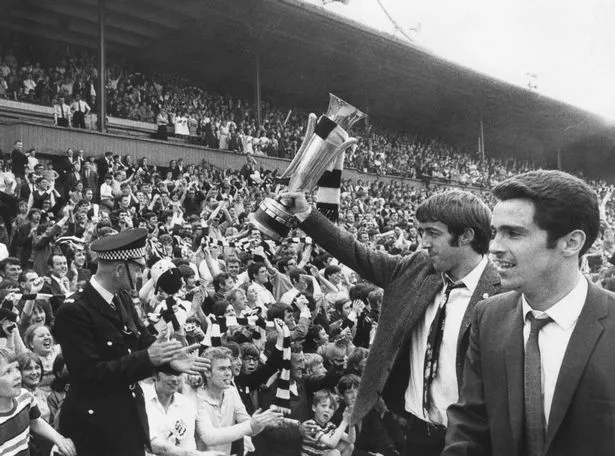
This is one of the most important awards of their career, not only because it’s an international achievement but also because you technically can’t win it anymore. The Fairs Cup was the predecessor of the UEFA Cup and was a European tournament that reunited the best teams in the continent to play against each other to see who was the best team for that year. Just like the Champions League, to participate in the Fairs Cup, you had to have good results in the season and be among the top teams, both of which United did that year. The victory in the competition came in 1969 and was one of their best years in over a century of sport.
FA Cup – 6 Trophies
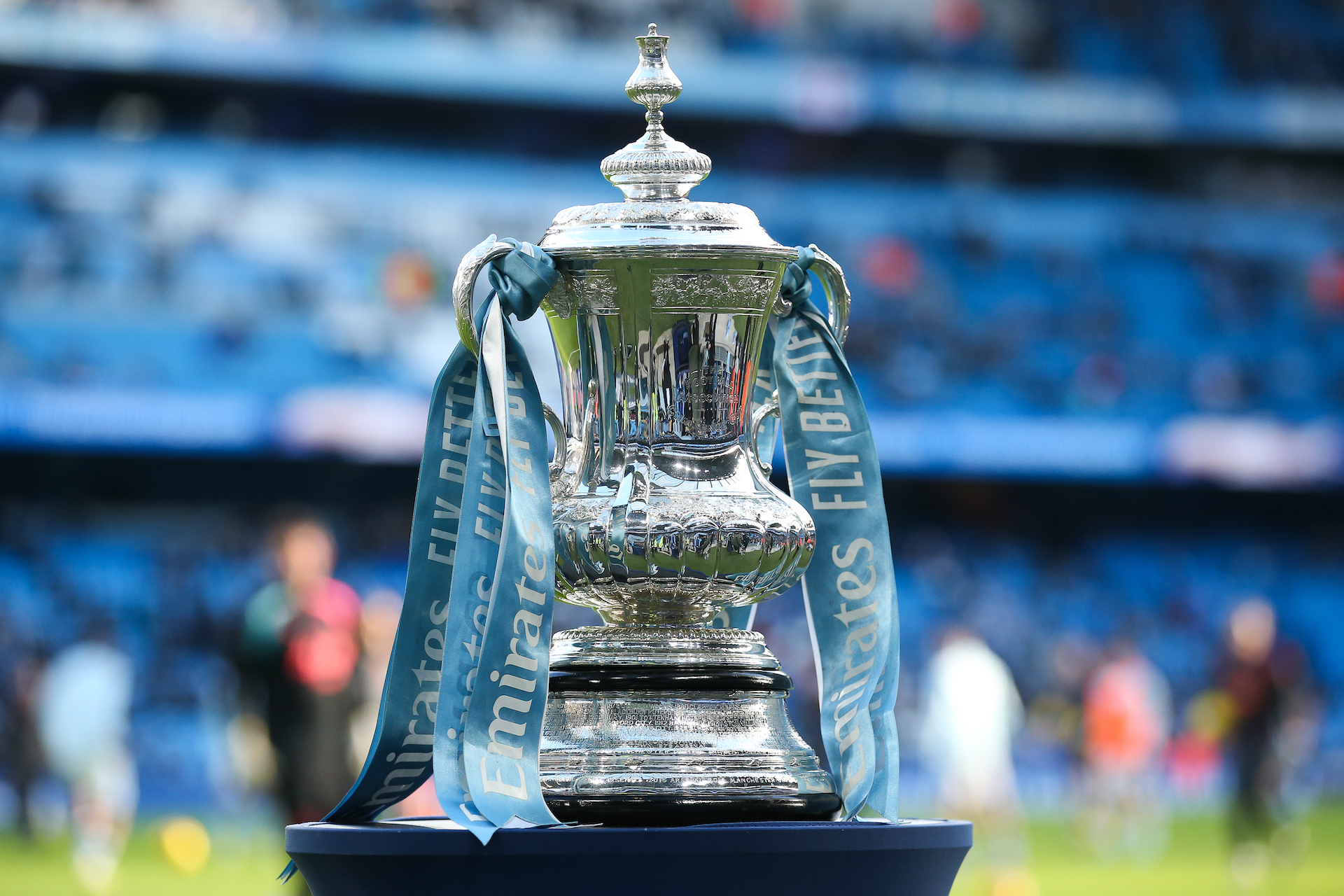
Before the Premier League, whoever ruled the FA Cup ruled the English football scenario.
Newcastle United is one of the most decorated teams in the United Kingdom in the tournament. They have won it six times throughout the year, keeping the club relevant throughout the century.
The club’s first victory in the competition came in 1910 when it was still relatively young. It was their first major achievement and an important trophy that indicated how big the team would become.
Their most recent FA Cup trophy was conquered in 1955, but even though they didn’t manage to win the competition in over 50 years, they are still a firm name and often reach the finals, being a headache for big opponents like Arsenal and Chelsea. One sign of their strength in the competition was winning two consecutive trophies in 1951 and 1952, with a fantastic campaign and great players.
English Championship – 4 Trophies
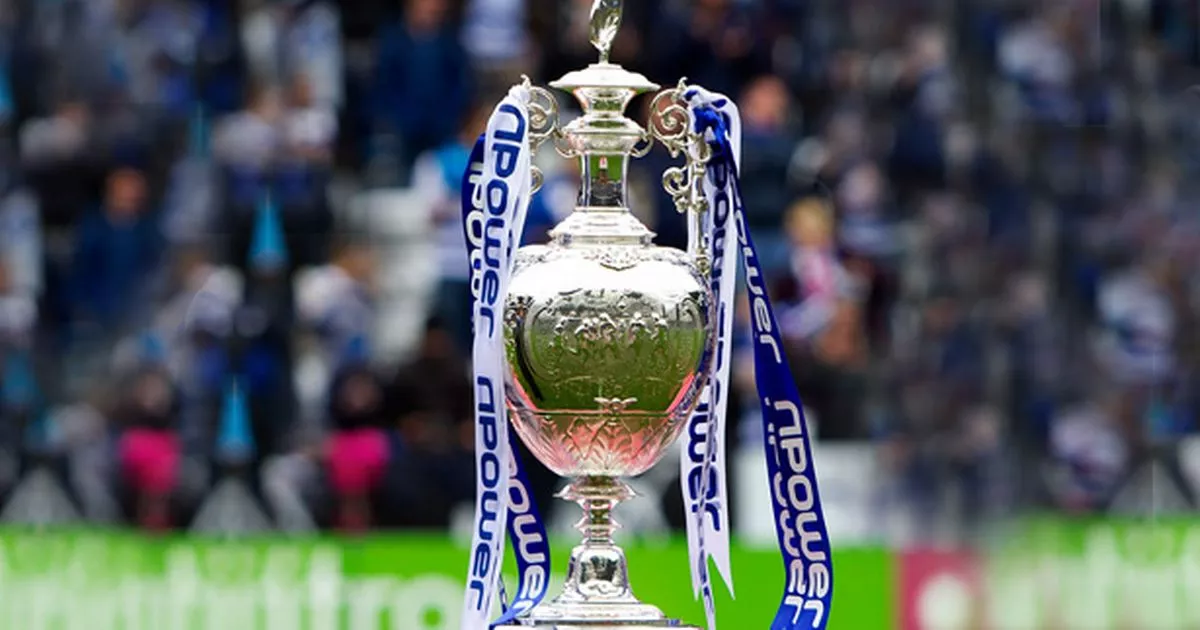
The English Championship is another traditional competition in the territory that draws crowds to the stadium to watch the games of the country’s main clubs. Newcastle United is known for its successful campaigns in the tournament during the early 1900s.
They won the competition four times, with their first trophy coming in 1904. The club was still in its early days, and lifting the title was a huge milestone—not just for the team, but also for the players and their fans. Since then, the club has built a lasting legacy that’s shaped the local community and secured its place in the history of English football.
But this wasn’t the last time they won the award; the most recent title came in 1927, and it was also during the earlier days of the club. A lot has changed since then, whether when it comes to how we see football or the technology involved in every match.
Write Your History With FootballTeam

We’ve shared some key moments from Newcastle United’s rich and storied history—a journey full of highs and lows that built a legacy to inspire generations.
Now it’s your turn to make history. Step onto the pitch with FootballTeam—the ultimate online football experience where you’ll compete against players from around the globe to prove who’s truly the best.
Create your own player and customize every aspect of your team to win the most matches and climb the tables all the way to the top. Develop your skills, collect items, try out different modules – all that on your way to becoming the brightest football star.
The game has over one million registered users and 60 thousand teams you can challenge and earn points. You can also invite your friends and create the perfect team, as the game allows you to connect with people worldwide from any mobile or desktop device.
FootballTeam is a free-to-play experience, and you can enjoy everything the game has to offer right now. Visit the game’s main page and start your journey to become the best player in the world!